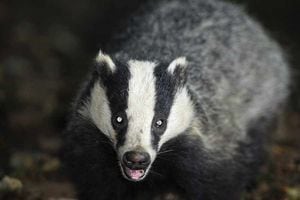Bovine TB jabs for badgers 'a resounding success' in Shropshire
Badger vaccinations against bovine tuberculosis around Shropshire have been a resounding success, the group behind the scheme said today.

A total of 41 badgers across nine sites in Shropshire were vaccinated this year by specially trained and licensed volunteers and their assistants, all members of Shropshire Badger Group. They say the scheme will continue next year.
A spokesman for the group, who did not want to be named, said: "Needled by the fact that thousands of perfectly healthy badgers had already been experimentally slaughtered in parts of Gloucestershire, Somerset and Dorset as part of Government attempts to fight cattle TB, and appalled at the prospect of hired gunmen roaming around the local countryside at night if the badger cull was brought to Shropshire, the volunteers of Shropshire Badger Group decided to put their expertise, resources and funds into their own badger vaccination scheme."
Bovine TB is an infectious disease of cattle and is caused by a bacterium that can also infect and cause TB in badgers, deer and other mammals. Badgers, which some claim transmit TB to cattle, have been subjected to culls in Somerset and Gloucestershire for three years running. A pilot cull in Dorset is also being held this year.
The Shropshire Badger Group spokesman said: "Government research has shown that not only does vaccination significantly reduce the direct risk of an individual badger developing the disease, but it also provides some indirect immunity to unvaccinated badger cubs. If more than a third of the adult badgers in a social group are vaccinated, the risk of the disease developing in unvaccinated cubs is cut by 79 per cent and this means eventually the total badger population is likely to become immune to TB.
"We believe our scheme makes a positive contribution in the fight to control bovine TB and to help the farming community."
According to Defra, about 30,000 cattle were slaughtered in Great Britain in 2014 because of bovine TB.





